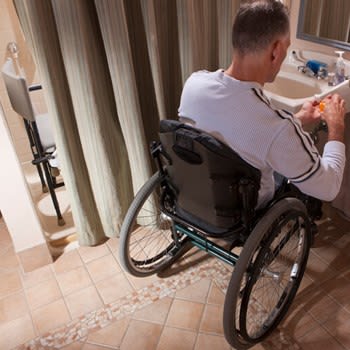Does Medicare Cover Cardiac Rehab?
- Learn when Medicare may cover cardiac rehab. Get the details on cardiac rehabilitation so you know what to expect from treatment and from out-of-pocket costs.
Medicare covers cardiac rehabilitation for individuals who meet eligibility requirements established by the U.S. Centers for Medicare and Medicaid Services.
If you have Original Medicare, Part B will generally pay for 80% of the cost of cardiac rehabilitation, leaving the remaining 20% for you to pay for out of pocket. You'll usually have to satisfy your annual Part B deductible before your Part B benefits kick in.
If you have a Medicare Supplement (or Medigap) plan, it may help you pay for all or some of the 20% Part B coinsurance for cardiac rehab that Medicare doesn't pay.
Who Is Eligible for Medicare Cardiac Rehab?
For Medicare to cover cardiac rehab, one of the following statements must apply to you:
- You've suffered a heart attack in the last 12 months.
- You underwent an artery bypass, a heart valve repair or a heart valve replacement surgery.
- You have chest pain diagnosed as stable angina.
- You needed a coronary angioplasty to open a blocked artery or a coronary stent to keep an artery open.
- You are the recipient of a heart-lung transplant.
- Your doctor has diagnosed you with stable chronic heart failure.
In addition, you'll need to:
- Receive a referral from a doctor
- Choose a facility that accepts Medicare
- Pay your monthly premium and any fees that Medicare doesn't cover
How Many Visits Does Medicare Cover for Cardiac Rehab?
Medicare guidelines allow for:
- Up to 36 general cardiac rehab sessions that last up to one hour. You can have two sessions per day.
- Up to 72 intensive cardiac rehab sessions that last up to one hour. You can have up to six sessions per day. All sessions must be completed within 18 weeks.
Do Medicare Advantage Plans Cover Cardiac Rehab?
Because Medicare Advantage Plans must provide at least the same coverage that Original Medicare does, yours is likely to cover the cost of cardiac rehab if you meet the guidelines outlined above.
Your plan may have broader coverage guidelines that allow more people to be eligible for cardiac rehab. Plans may also pay for more cardiac rehab sessions than Medicare Part B.
You'll usually need to satisfy a deductible and pay a copay or coinsurance, though some plans may offer $0 medical deductibles.
Medicare Advantage plan availability and costs vary depending on where you live and a number of other factors, so it can be helpful to compare plans online or get answers to your Medicare questions by speaking with a licensed insurance agent.
It's important to note that Medicare Supplement and Medicare Advantage plans are different types of plans, and you can't have each at the same time.
What Is Cardiac Rehab?
Cardiac rehab is a program that promotes cardiovascular health as part of an overall treatment plan for heart disease. The rehabilitation is overseen by medical professionals and usually takes place in a hospital on an outpatient basis.
Depending on your medical history, your doctor may recommend general or intensive cardiac therapy. Both types of rehabilitation combine physical exercise with counseling and education. As the name suggests, intensive programs tend to be more rigorous than general ones.
Heart disease is the leading cause of death in the United States, according to the U.S. Centers for Disease Control and Prevention (CDC). Although one out of every four deaths in America is due to heart problems, the right treatment plan can greatly reduce your risk of becoming a statistic.
Studies have found that repeated sessions of cardiac rehab can greatly reduce the risk of death, and Medicare often covers the treatment, making it more affordable for older adults.
What Does Cardiac Rehab Involve?
A cardiac rehab treatment program may include:
- Physical exercise
- Nutritional counseling
- Support for smoking cessation
- Stress management counseling
- Medication management support
What Kind of Exercises Do You Do in Cardiac Rehab?
Exercise is a key component of most cardiac rehab. Increasing your level of physical activity helps strengthen your heart and can reduce blood pressure, cholesterol and blood sugar levels. Your medical team will develop an exercise regimen tailored to your needs and abilities. Some exercises that may be included are:
- Stationary bikes
- Treadmills
- Weight training
- Stretching
A medical professional remains by your side throughout the exercise portion of rehab. You may undergo an electrocardiogram (EKG) afterward to assess how your heart responded to the workout.
What Are the Benefits of Cardiac Rehab?
Cardiac rehab has been shown to have many benefits. According to the CDC, it may:
- Help you recover from surgical procedures or a heart attack
- Minimize chest pain and other symptoms of heart disease
- Allow you to make permanent lifestyle changes to promote heart health
- Ease stress
- Reduce depression
- Ensure you know how to properly take your medication
- Reduce your risk of future heart attacks and death due to heart disease
How Long Is a Cardiac Rehab Program?
Most cardiac rehab programs last for about 3 months, but the length can range from 2 to 8 months.




